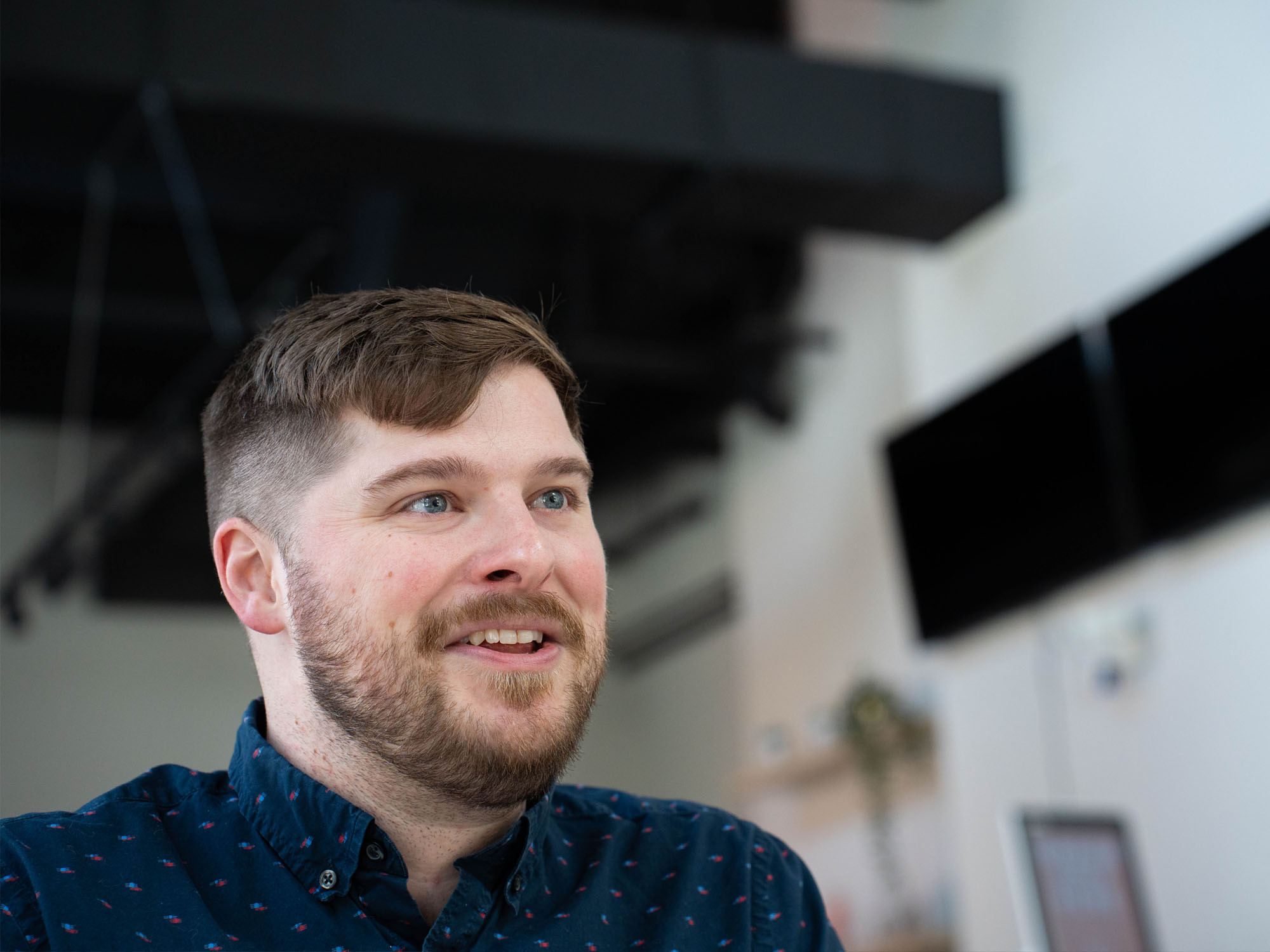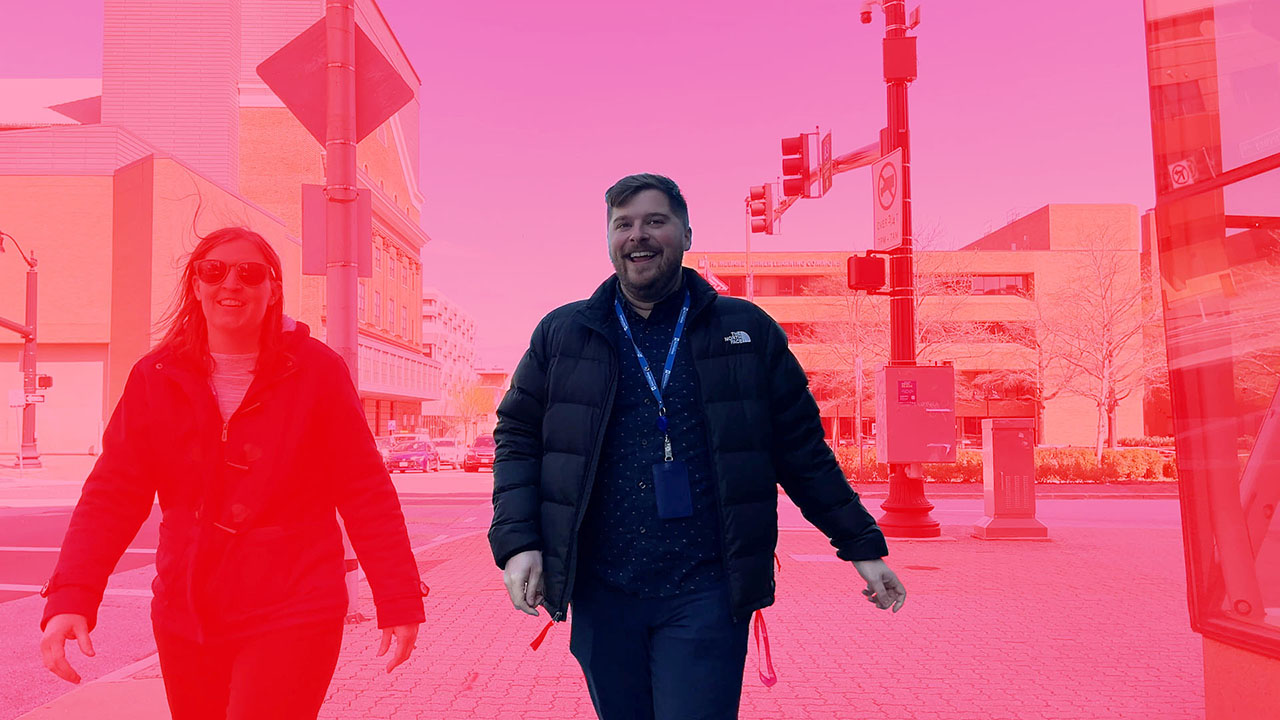
Matt Mazick found a passion for education long before he started as an academic adviser for The University of Baltimore’s Merrick School of Business. During his undergraduate studies, when he was a journalism major, he traveled to South Korea to teach English, and it changed his outlook on his life and career.
He then pursued work with Teach for America, settling in a classroom in North Carolina. There, he grew to understand the value of education and support within its systems. Taking a break at HH Tea on Biddle Street, Matt shared about his continued work in education and counseling.
Q: Why did you pursue a counseling career?
A: Growing up, my grandma was the reason why I wanted to help other people. She was the type of person who would, while dangerous, stop on the side of the road to help someone whose car was broken down, or she just noticed that they were in need, and she would stop and help them. She would find ways to bring people up when they're at their lowest, and for me, I was seeing that as the archetype for what it means to be a mature adult. It inspired me to pursue those types of careers.
I got the opportunity early on in undergrad to work as a teacher in South Korea. It was really eye opening for me because at that point, I didn't really get many opportunities to be in the classroom. That was 2013. Since then, I've always been in some sort of educational environment, and ultimately, brought me to where I'm at now, working in the advising field. I also work as a licensed therapist. That's my niche, and where I think I thrive.


Q: What's different about the job you have here versus other places you've worked?
A: A colleague at my previous institution recommended that I apply at the University of Baltimore because they had a chance to work here and really understood the student population and the community of professionals who work here. At that time, I really loved what I was doing. I wanted to shift in terms of who I was supporting as an adviser.
Once I got on the ground and working with students, I knew this was the right place for me. The University focuses on social mobility, for instance. That's super important, because I grew up a working class, first-generation college student, and it changed my world to be able to have access to a university, to degrees. Being part of that for others makes the work so fulfilling.
Q: What do you what are some things you wish every student knew as they pursue their degree?
A: They're not alone. I think that one of the biggest barriers is this aspect of gatekeeping. Whenever it comes to higher education, you go into this environment and you think, I know nothing about this, no one is here to help, I'm doing this all alone, and it is so far from the fact. We have a great student population, many people who would be hyper supportive, and we as a community truly try to meet students where they're at and it all it takes is just for them to ask a question. It changes their whole experience. Most of our students are working adults, for instance, or they have families, or they're in care-taking roles, and they have limited time, and on top of that, they feel like they're not right for the university setting. They don't feel like they're welcomed even at a university or college. So, I think that breaking that barrier down and understanding that it is not an exclusive experience is one thing that I hope that all students really understand and hear whenever they come to the University of Baltimore.
Q: How would you advise students to partner with their faculty?
A: First and foremost, I think that we want students to understand the dynamic. There's this inherent power dynamic between a student and a professor, and that can be really intimidating. In my opinion, faculty members are there because they want you to learn, they want you to grow, and they are part of that journey, but they can't read your mind. So, one of my No. 1 go-tos, is ask questions. Be willing to show that you are a student. Come forward and ask the question, even if no one else is saying it. That shows intrigue, that shows curiosity, that shows that you're willing to participate and engage in your learning. I know that seems simple, but it's one of the things that I coach students through the most, that it’s OK to further understand what they're trying to teach. Because, really, you leaving without any of that knowledge is a failure on both parts.

What Charms Us
Baltimore has the best aquarium around! If you’re looking for me on the weekend, you’ll find me in the jellyfish exhibit.

